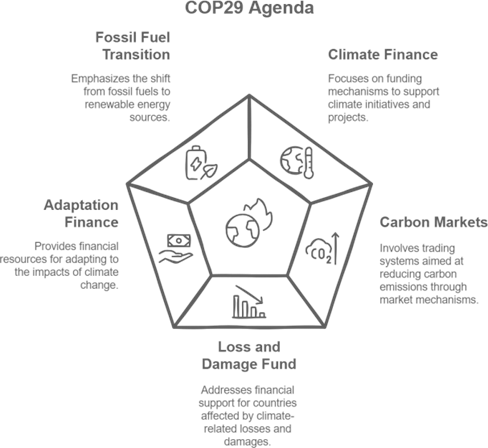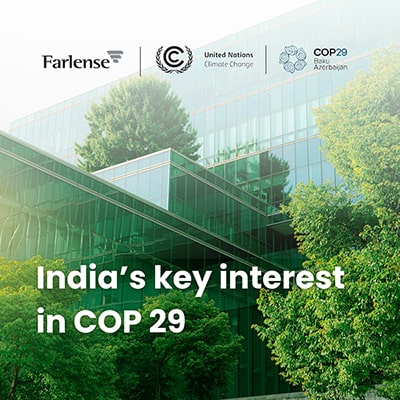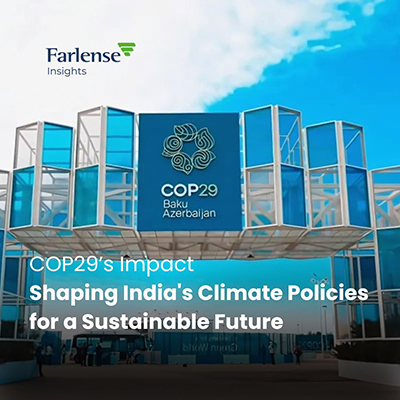As COP29 unfolds in Baku, Azerbaijan, global attention is riveted on the pressing challenges posed by climate change. This year’s summit represents a pivotal moment for international climate action, as it aims to address critical issues such as climate finance, carbon markets, and climate adaptation while striving to meet the ambitious global temperature targets outlined in previous agreements.
The discussions at COP29 are particularly significant given the heightened stakes surrounding climate action. With nearly 200 nations participating, the conference is expected to yield essential developments in several key areas:

Climate Finance: The Heart of COP29
COP29 has rightfully earned the title of “Finance COP” due to its emphasis on climate finance. It is crucial for negotiations, especially for developing nations in the Global South that face significant financial hurdles in addressing climate change impacts. Wealthier countries had committed to providing $100 billion annually to assist these nations in transitioning to clean energy and adapting to climate challenges. However, this target remains unmet, and the financial requirements exceed these initial pledges. At COP29, there is a strong expectation that countries will move beyond mere promises and instead commit to substantial and sustainable funding solutions that genuinely address the needs of the most vulnerable nations.
A central theme in these discussions is the establishment of effective and transparent financial mechanisms, including engaging the private sector, to help bridge the widening funding gap. Without such mechanisms, developing countries may continue to struggle in their climate initiatives, jeopardising global progress in combating climate change.
Carbon Markets and the Paris Agreement: A Path Forward
A significant topic at COP29 is the future of carbon markets. Article 6 of the Paris Agreement enables countries to trade carbon credits to offset emissions and achieve climate targets.
However, the existing carbon market framework suffers from regulatory ambiguities, insufficient guidelines, and issues related to greenwashing and unverified credits. COP29 provides a crucial opportunity to finalise carbon trading regulations and create a transparent and reliable market system. Such a system could potentially unlock billions in investments for clean energy initiatives, facilitating cost-effective emissions reductions on a global scale.
Loss and Damage Fund: Addressing Vulnerability
The Loss and Damage Fund, created at COP27, is designed to provide financial support to countries disproportionately impacted by climate-related disasters. Although establishing the fund was a significant milestone, its implementation is still a work in progress. At COP29, the emphasis will be on ensuring that vulnerable nations receive timely and sufficient assistance. This includes agreeing on funding mechanisms, governance structures, and criteria for accessing these funds. However, a major hurdle remains in securing adequate financial commitments, as the needs of affected communities’ amount to hundreds of billions of dollars each year.
Adaptation Finance: Closing the Gap
As the climate crisis intensifies, adaptation finance has become more important than mitigation efforts. COP29 presents a vital opportunity to bolster support for nations that need to prepare for and recover from the impacts of climate change. However, there remains a significant gap in adaptation finance, with insufficient funding reaching the most vulnerable countries. Bridging this gap is crucial for enhancing resilience against climate shocks and ensuring the effective implementation of adaptation strategies.
Strengthening Nationally Determined Contributions (NDCs)
Nationally Determined Contributions (NDCs) are fundamental to global climate initiatives, reflecting each country’s commitment to reducing greenhouse gas emissions. However, the current NDCs are insufficient to limit global warming to 1.5°C. Scientific evaluations indicate that, even with existing commitments, the world is progressing toward a temperature increase of 2.4°C, which could lead to disastrous outcomes. COP29 offers a crucial opportunity to reinforce these commitments and improve national action plans. Countries must raise their ambitions while ensuring that support mechanisms— such as financial aid, technology transfer, and capacity building—are established, especially for developing nations.
Fossil Fuel Dependency and Transition to Renewables
A crucial yet frequently neglected issue at COP29 will be addressing the reliance on fossil fuels. Despite calls for a shift, these energy sources account for over 80% of global CO2 emissions.
Progress has been sluggish on renewable energy. COP29 must advocate for concrete and actionable plans to phase out fossil fuels, complete with specific timelines and just transition strategies for communities dependent on these industries. This challenge extends beyond environmental concerns; it is also an economic issue that necessitates careful planning to ensure that workers and regions reliant on fossil fuels are not left behind.
The Role of Civil Society and Transparency
Engagement with civil society is essential for ensuring that climate negotiations are transparent, accountable, and inclusive. Civil society organisations are vital in advocating for marginalised communities and holding governments responsible for their commitments. At COP29, fostering an inclusive dialogue where a variety of voices are heard will be critical. Additionally, climate finance and policy implementation transparency are vital, as stakeholders require access to information about funding allocations and project outcomes to verify that commitments are being effectively fulfilled.
India’s critical interests in COP29
As India prepares for COP29, its interests centre on advancing its renewable energy ambitions and securing vital funding for sustainable initiatives. A key focus is on renewable funding, where India aims to attract investments for green technologies through mechanisms like the Climate Finance Action Fund. This aligns with India’s goal of achieving 500 GW of renewable energy capacity by 2030, primarily through solar and wind projects, crucial for transitioning away from fossil fuels. Additionally, India is positioning itself as a leader in green hydrogen production, leveraging the anticipated Hydrogen Declaration to enhance its sustainable energy portfolio. In the agricultural sector, initiatives like the Baku Harmoniya Climate Initiative will support farmers in adopting climate-resilient practices, ensuring that rural communities can withstand climate impacts while contributing to national sustainability goals. Overall, India’s participation in COP29 reflects its commitment to equitable climate finance and the promotion of innovative solutions for a greener future.
Conclusion: A Defining Moment for COP29
COP29 marks a pivotal moment in the global battle against climate change. The decisions made during this summit will have enduring effects on the future of climate action, with the stakes higher than ever. Whether it involves securing sufficient climate finance, enhancing carbon markets, or ensuring that vulnerable nations receive support through the Loss and Damage Fund, the outcomes in Baku will set the stage for future climate negotiations.
The urgency to curb global warming is pressing, and COP29 may represent one of the last chances to take decisive action to prevent catastrophic climate consequences. As the world closely observes, the demand for more substantial and ambitious commitments, effective financial mechanisms, and genuine collaboration among nations has never been more pronounced. The global community must rise to this challenge, making COP29 a true turning point in the fight against climate change.


